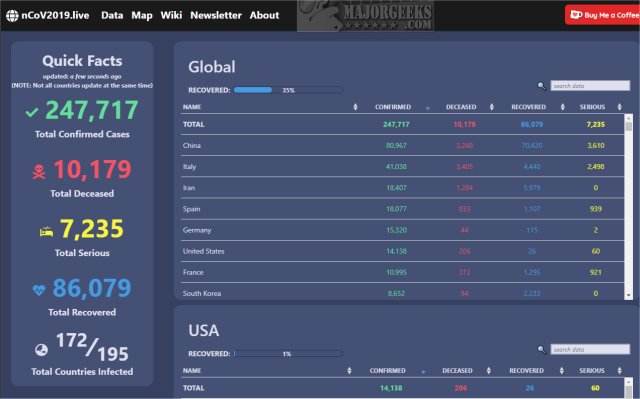How to Avoid COVID-19 Contact Tracer Spam Calls
By Timothy Tibbettson 06/15/2023 |
Scammers are making the rounds attempting to get information by pretending to be contact tracers. Here's how to avoid falling prey to this scam.
Most phone calls will open with someone claiming to be from your local health department to warn you that you have come into contact with someone who has COVID-19. Typically, you should be notified before the phone call by a text message.
 live 1.jpg)
Contact tracers are doing just that - trying to find out who could be affected by a single case and making contact. Typically, they should warn you that you may have come into contact and ask you to quarantine for two weeks.
Anything after that is a scam and should be easy to spot.
There are numerous signs you're dealing with a scammer:
Bad acting or possibly a foreign accent.
Asking for money.
Asking for your social security number.
A text message with a link to click.
Specifically names a person who was possibly infected.
There is some action you can take to verify that you're not dealing with a scammer and put an end to it if it is:
Ask for a name and number so you can call them back.
Google the phone number. If it doesn't return a local or state entity, forget about it and block the number.
Keep in mind that there is genuine help that you might want or need if you might be infected. You have access to resources, including information on how to proceed and even food and medicine deliveries.
Similar:
5 Websites to Track the Coronavirus (COVID-19) Live
Coronavirus Scams to Watch Out For
Coronavirus Time Killer - Back Up Your Computer
Can I Get Coronavirus From Mail or Package Deliveries?
comments powered by Disqus
Most phone calls will open with someone claiming to be from your local health department to warn you that you have come into contact with someone who has COVID-19. Typically, you should be notified before the phone call by a text message.
 live 1.jpg)
Contact tracers are doing just that - trying to find out who could be affected by a single case and making contact. Typically, they should warn you that you may have come into contact and ask you to quarantine for two weeks.
Anything after that is a scam and should be easy to spot.
There are numerous signs you're dealing with a scammer:
There is some action you can take to verify that you're not dealing with a scammer and put an end to it if it is:
Keep in mind that there is genuine help that you might want or need if you might be infected. You have access to resources, including information on how to proceed and even food and medicine deliveries.
Similar:
comments powered by Disqus






